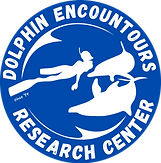
EMMT MOZAMBIQUE
ethical marine mammal tourism


About
We realise that there is a want and a will from humanity to interact with marine mammals in their natural environment, these encounters can have profound effects on humans and detrimental effects on marine mammals. We advocate a code of conduct to lessen the impact of human encounters and promote and campaign for ethical marine mammal tourism practices along the African coastline in hope of creating a safer world for these non-human persons! EMMT is a way forward that ensures the protection of marine mammals. We encourage Mozambique to include marine mammals into national conservation laws and have submitted recommendations on adopting ethical marine mammal tourism protocols.
History of dolphin tourism in S.Mozambique
During the mid 90’s swimming with dolphins was initiated in Mozambique. South Africa had recently prohibited the activity and Ponta do Ouro’s safe and secure bay was the perfect area to establish Africa’s first structured wild dolphin swim center. In collaboration with various researchers and together with the support of many wonderful people a sustainable, eco-tourism project was developed that followed a strict, area specific code of conduct. It was soon realised that the exploitation of the dolphins was becoming a problem and as a result the DolphinCare Code of Conduct was promoted in the area with the intension of limiting the amount of traffic and educating swimmers in a briefing prior to going to sea. A one boat policy was implemented that operators followed. A dream of seeing a marine protected area be proclaimed took over 15 years to manifest and during that time, marine mammal tourism grew unsustainably and the need to manage human-dolphin interactions become a priority. Towards the end on 2011 the management plan for the Ponta Partial Marine Reserve was enforced, which saw a decrease in dolphin swim operators and the enforcing of a code of conduct. The code of conduct has evolved over the years and no doubt will continue to evolve as tourism and development increase to the area. Operators, facilitators and skippers are encouraged to become citizen scientists by collecting baseline data and images of our local Dolphins of Ponta, Humpback Whales and other marine mega fauna encountered. Training for data collection and swim facilitation is available on request by our team.

CODE OF CONDUCT
Recreational
Maintain a slow, steady speed & keep a look out. Refrain from altering course to approach dolphins and whales. Move off if signs of distress are seen; change of direction, fast erratic swimming & tail slapping. No Approach within 300m of marine mammals.* No swimming with marine mammals.* Avoid driving in backline. * Marine mammal operators are permitted to approach and enter into the water
Operator
Adheres to a one boat policy, follows a 20 minute viewing time & have experienced guides in water. Follow a two drop*, no touch, chase & dive down policy * During peak season one pod one drop. Approach animals calmly & slowly. Rest time for dolphins between in-water visits is promoted. Swimming with newborns not permitted. Avoid in-water encounters with whales. The use of flash photography & underwater scooters are not permitted. The same applies to whale-sharks and manta rays.
Fishing
FISHERMAN are asked to be aware & take care! Being dolphin friendly includes pulling in your lines when dolphin/whales are present & never trawling through a pod. Do not discard your tackle at sea & use non-stainless steel fishing hooks.
Drones
DRONES - recent research shows that flying drones above marine mammals causes stress. The use of drones is not permitted in the Park.







